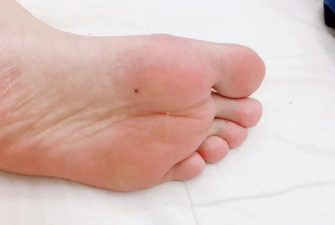Cervical spondylosis, also known as neck arthritis, is a common degenerative condition affecting the bones, discs, and joints of the neck. With multiple treatment avenues available, it’s crucial to understand what options might best fit an individual’s needs. Let’s explore some of these treatments based on the given keywords.
1. Best Treatment for Cervical Spondylosis
There’s no one-size-fits-all answer, as the best treatment often depends on the severity of the condition and individual preferences. However, a combination of medication, physiotherapy, lifestyle changes, and in severe cases, surgery, can offer relief.
2. Kalmia Latifolia for Cervical Spondylosis
Kalmia Latifolia, commonly known as mountain laurel, is a homeopathic remedy often recommended for sharp, shooting pains typical in cervical spondylosis. The efficacy of homeopathic remedies can vary by individual, so it’s essential to consult a homeopathic practitioner for the right dosage and frequency.
3. Physiotherapy Exercises for Cervical Spondylosis
Physiotherapy can be incredibly beneficial in strengthening the neck muscles and improving flexibility. Some recommended exercises include:
- Neck Flexion and Extension: Slowly moving the head forward and backward.
- Lateral Neck Stretch: Gently tilting the head from side to side.
- Neck Rotation: Turning the head from left to right, ensuring it’s a smooth motion.
- It’s vital to perform these under the guidance of a trained physiotherapist to avoid any complications.
4. Best Medicine for Cervical Spondylosis
Over-the-counter pain relievers, like ibuprofen and acetaminophen, can help manage pain and inflammation. Muscle relaxants can also help relieve muscle spasms. It’s essential to consult a physician before starting or changing any medication regimen.
5. Vitamin B12 and Cervical Spondylosis
There’s evidence to suggest a link between Vitamin B12 deficiency and worsening symptoms of cervical spondylosis. Vitamin B12 plays a pivotal role in nerve function, and a deficiency can lead to nerve-related symptoms. Supplementation or a diet rich in B12 might be beneficial, but it’s vital to discuss with a healthcare provider.
6. Himalaya Medicine for Cervical Spondylosis
Himalaya Herbal Healthcare offers a range of natural and Ayurvedic products. While they may have formulations that aid joint and bone health, it’s essential to use these supplements under a healthcare professional’s guidance.
7. Operation for Cervical Spondylosis
In severe cases where conservative treatments do not provide relief, surgery might be an option. Surgical procedures aim to alleviate pressure on the spinal cord or nerve roots. The type of surgery varies based on the cause of compression and the affected region.
In conclusion, treating cervical spondylosis requires a multifaceted approach. Whether you’re exploring natural remedies, physiotherapy, or considering surgery, it’s crucial to be well-informed and work closely with healthcare professionals to achieve the best possible outcomes.










